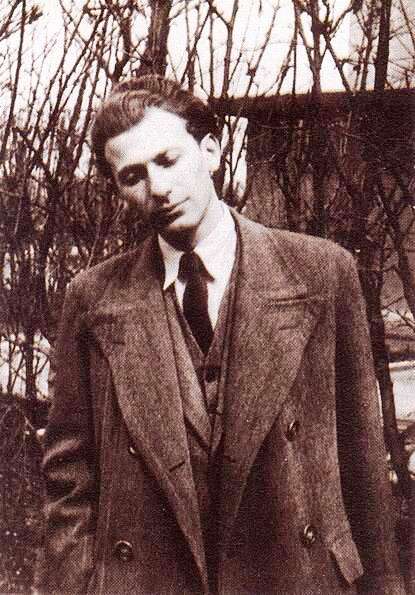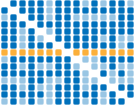Nem tudhatom… (Magyar)
Nem tudhatom, hogy másnak e tájék mit jelent,
nekem szülőhazám itt e lángoktól ölelt
kis ország, messzeringó gyerekkorom világa.
Belőle nőttem én, mint fatörzsből gyönge ága
s remélem, testem is majd e földbe süpped el.
Itthon vagyok. S ha néha lábamhoz térdepel
egy-egy bokor, nevét is, virágát is tudom,
tudom, hogy merre mennek, kik mennek az uton,
s tudom, hogy mit jelenthet egy nyári alkonyon
a házfalakról csorgó, vöröslő fájdalom.
Ki gépen száll fölébe, annak térkép e táj,
s nem tudja, hol lakott itt Vörösmarty Mihály,
annak mit rejt e térkép? gyárat s vad laktanyát,
de nékem szöcskét, ökröt, tornyot, szelíd tanyát,
az gyárat lát a látcsőn és szántóföldeket,
míg én a dolgozót is, ki dolgáért remeg,
erdőt, füttyös gyümölcsöst, szöllőt és sírokat,
a sírok közt anyókát, ki halkan sírogat,
s mi föntről pusztitandó vasút, vagy gyárüzem,
az bakterház s a bakter előtte áll s üzen,
piros zászló kezében, körötte sok gyerek,
s a gyárak udvarában komondor hempereg;
és ott a park, a régi szerelmek lábnyoma,
a csókok íze számban hol méz, hol áfonya,
s az iskolába menvén, a járda peremén,
hogy ne feleljek aznap, egy kőre léptem én,
ím itt e kő, de föntről e kő se látható,
nincs műszer, mellyel mindez jól megmutatható.
Hisz bűnösök vagyunk mi, akár a többi nép,
s tudjuk miben vétkeztünk, mikor, hol és mikép,
de élnek dolgozók itt, költők is bűntelen,
és csecsszopók, akikben megnő az értelem,
világít bennük, őrzik, sötét pincékbe bújva,
míg jelt nem ír hazánkra újból a béke ujja,
s fojtott szavunkra majdan friss szóval ők felelnek.
Nagy szárnyadat borítsd ránk virrasztó éji felleg.
1944. január 17. | Feltöltő | P. T. |
| Az idézet forrása | http://mek.niif.hu |
|
I cannot know… (Angol)
I cannot know what this land means to other people.
For me, it is my birthplace, this little nation embraced
by flames, the world of my childhood rocking in the distance.
I grew out of her like a tender branch from a tree
and I hope one day my body will sink into her.
I am at home. And if a shrub happens to kneel down
beside my foot, I know both its name and its flower;
I know who walks on the road and where they are going,
and what it might mean when in the summer sunset
the house-walls shimmer and drip with crimson-agony.
For one who flies above, this land is merely a map,
and does not know where lived Vörösmarty Mihály,
what does this map hold for him? factories and wild barracks;
but for me crickets, oxen, steeples, peaceful homesteads;
he sees factories in his lenses and cultivated meadows,
while I see the worker too, who for his work trembles.
Forests, singing orchards, grapes and cemeteries,
among the graves an old woman who quietly weeps.
And what seem from above train tracks to destroy
is a conductor's house and he stands outside and signals;
many kids surround him, a red flag in his hand,
and in the courtyard a komondor rolls in the sand;
and there's the park, the footsteps of long-lost loves,
the kisses on my mouth both honey and cranberry.
And walking off to school on the edge of the road,
to avoid being called on, I stepped on a stone;
look, here's the stone, but from above, this cannot be seen,
there is no machine with which all this can be revealed.
For we are guilty too, as other peoples are,
knowing full-well when and how and why we've sinned so far,
but workers live here too, and poets, without sin
and tiny babies in whom intellect will flourish;
it shines in them and they guard it, hiding in dark cellars
until the finger of peace once again marks our nation,
and with fresh voices they will answer our muffled words.
Cover us with your big wings, vigil-keeping evening cloud. | Feltöltő | P. T. |
| Az idézet forrása | http://www.facebook.com/note.php?note_id=11012354975 |
|




